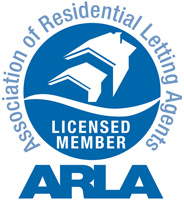General Advice for Landlords

Mortgage
If your property is mortgaged, you should obtain your mortgagee's written consent to the letting. They may require additional clauses in the tenancy agreement of which you must inform us.
Leaseholds
If you are a leaseholder, you should check the terms of your lease, and obtain any necessary written consent before letting. It is advisable to provide your tenants with a copy of the lease.
Insurance
You should ensure that you are suitably covered for letting under both your buildings and contents insurance. Failure to inform your insurers may invalidate your policies. We can advise on Landlords Legal Protection, Rent Guarantee Cover and Landlords Contents and Buildings Insurance if required.
Bills and regular outgoings
We recommend that you arrange for regular outgoings e.g. service charges, maintenance contracts etc. to be paid by standing order or direct debit. However where we are managing the property, by prior written agreement we may make payment of certain bills on your behalf, provided such bills are received in your name at our office, and that sufficient funds are held to your credit.
Council tax and utility accounts
We will arrange for the transfer of Council Tax and utility accounts to the Tenant. Meter readings will be taken, allowing your closing gas and electricity accounts to be drawn up. All these matters we will handle for you, however British Telecom will require instructions directly from both the Landlord and the Tenant.
Income tax
When resident in the UK, it is entirely the Landlords responsibility to inform the Inland Revenue of rental income received, and to pay any tax due. Where the Landlord is resident outside the UK during a tenancy, under rules effective from 6 April 1996, unless an exemption certificate is held, we as Landlord's Agent are obliged to retain and forward to the Inland Revenue on a quarterly basis, an amount equal to the basic rate of income tax from rental received, less certain expenses. An application form for exemption from such deductions is available from this Agency, and further information may be obtained from the Inland Revenue.
The inventory
It is most important that an inventory of contents and schedule of condition be prepared, in order to avoid misunderstanding or dispute at the end of a tenancy. Without such safeguards, it will be impossible for the Landlord to prove any loss, damage, or significant deterioration of the property or contents. In order to provide a complete Service, we will if required arrange for a member of staff to prepare an inventory and schedule of condition, at the cost quoted in our Agency Agreement.


